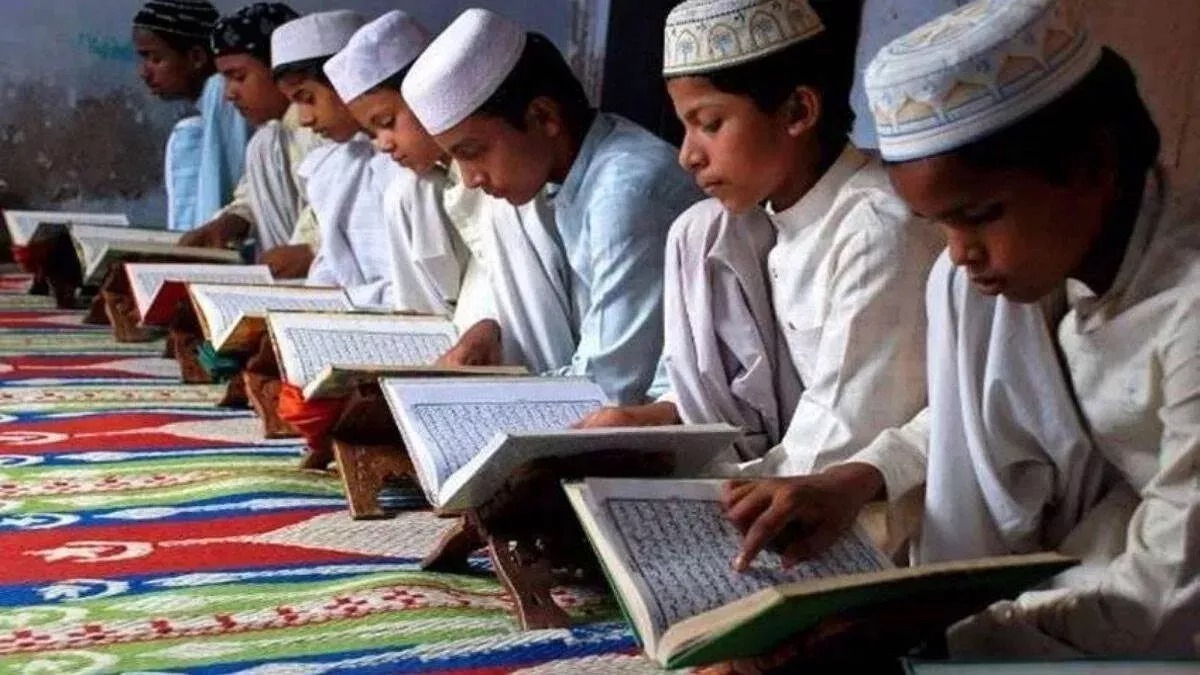
New Delhi: There is a news of relief from the Supreme Court for lakhs of children studying in madrasas in Uttar Pradesh. The Supreme Court has declared the Uttar Pradesh Madrasa Education Board Act 2004 constitutional, but at the same time, those who have taken graduate and post graduate degrees Kamil-Fazil from madrasas have got a big shock, because the Supreme Court has declared the provisions of giving Kamil-Fazil degrees unconstitutional, saying that they are against the UGC Act.
Shock to those who took Kamil-Fazil
The Supreme Court has rejected the decision of Allahabad High Court dated 22 March 2024, in which the High Court had declared the UP Madrasa Board Act unconstitutional. The High Court had said that this law is against the principle of secularism and the right to equality and education. The High Court had also ordered the transfer of children studying in madrasas to regular schools, but the Supreme Court had put an interim stay on the order of the High Court in the initial hearing on the petition, due to which studies continued in madrasas.
UP Madrasa Education Board Act was passed during Mulayam Government
In 2004, when Mulayam Singh Yadav was the Chief Minister of Uttar Pradesh, the state government passed the Uttar Pradesh Madrasa Education Board Act. This important decision on Madrasa education was given by a bench of Chief Justice DY Chandrachud, JB Pardiwala and Manoj Mishra on the petitions challenging the decision of the Allahabad High Court.
What did the court say?
The Supreme Court said that the Madrasa Act regulates the level of education provided in Madrasas recognized by the Board. The Madrasa Act is consistent with the state government's responsibility to ensure a quality education for children studying in recognized Madrasas so that those children can participate effectively in society and earn their livelihood.
While upholding the Madrasa Act as constitutional, the Supreme Court said that the state legislature is competent to make such a law and the right to do so is given to it in the 25th entry of the third list of the Constitution. The Supreme Court rejected the High Court's decision that the entire Madrasa Act is against the principle of secularism and hence unconstitutional.
What did the UP government say?
The apex court said that only those provisions of the Madrasa Act are wrong which are related to higher education like Fazil and Kamil and these provisions can be separated from the rest of the provisions of the Madrasa Act. In this case, the Uttar Pradesh government had told the Supreme Court that it accepts the order of the High Court and has taken steps to implement the decision, however, whatever decision the Supreme Court gives will be followed. The state government had also said that some provisions of the Madrasa Act may be unconstitutional and they can be repealed, but it was not right for the High Court to repeal the entire Madrasa Act.
--Advertisement--

 Priya
Priya Share
Share



